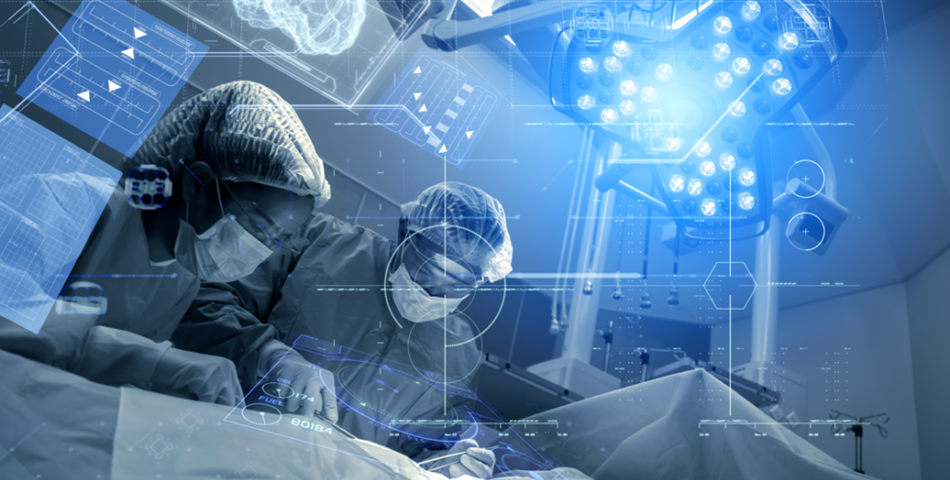Physician burnout, hospital overcrowding, and other issues caused (or exacerbated) by the COVID-19 pandemic forced many healthcare companies to change course quickly. Luckily, in the face of adversity, these organizations have managed to innovate in ways that will greatly benefit patients and physicians long after the pandemic’s conclusion.
In recent months, automation in healthcare has shown particularly strong growth. Companies throughout the industry have found ways to improve the patient experience, better diagnose illnesses, and organize healthcare data with AI. Below, we’ll look at a few case studies and reflect on the progress of AI and machine learning across the healthcare industry.
Patients and Behavioral Analytics
As the healthcare industry reels from staffing shortages and physician burnout, automation can play a vital role in ensuring patients do not fall through the cracks. The healthcare data science company Cogitativo, for example, is currently working to identify at-risk veterans across America who may have put off treatments and examinations during the pandemic.
To do this, Cogitativo leverages machine learning to target veterans with chronic conditions, such as diabetes, who may have had trouble getting consistent care in 2020 and 2021. Automation allows the company to sort patients based on the “probability of an acute clinical event or disease progression within the next 12 months,” according to Cogitativo CEO Gary Velasquez.
Beyond Cogitativo’s efforts, automation in healthcare allows companies throughout the industry to detect and respond to patient trends. For example, HealthTech Magazine writer Brian Eastwood notes that many organizations utilize deep-learning AI to understand which patients are most likely to cancel a doctor’s appointment. This allows clinicians and administrators to give these patients additional personalized contact in the days leading up to their checkups.
Automation in Healthcare Data Analytics
Dr. Anthony Chang, the founder of AIMed, saw a vital problem with the patient experience. Often, physicians must spend too much time entering information into an electronic health record (EHR) during consultations instead of taking those critical minutes to observe and speak directly to the patient. Dr. Chang believes that, going forward, automated systems will be able to record this data into the EHR, allowing physicians to focus all their attention on the patient.
AI is already playing an important role in how physicians navigate EHRs. One company, Diagnoss, produces an EHR assistant that leverages automated systems to choose the correct medical codes for each patient consultation. This allows caregivers to spend less time navigating cumbersome EHRs, one of the leading causes of physician burnout.
Deep Learning and Diagnostics
Certain conditions are difficult for physicians to detect and can go undiagnosed for far too long. According to Dr. David Ouyang of the Smidt Heart Institute, hypertrophic cardiomyopathy and cardiac amyloidosis are high on that list. “These two heart conditions are challenging for even expert cardiologists to accurately identify.”
The Smidt Heart Institute, along with several other organizations, trained algorithms to take key measurements of patients’ heart chambers, which can show warning signs of these two conditions. According to Dr. Ouyang, the process demonstrates promising results. “The algorithm picks up subtle cues on ultrasound videos that distinguish between heart conditions that can often look very similar to more benign conditions…on initial review.”
Similar breakthroughs in AI and machine learning are happening across the industry. Forbes recently cited a study that found implementing machine learning lowered the risk of human error in breast cancer diagnosis by 85%. Meanwhile, in a recent article on healthcare data analytics, we discussed how AI could look at a patient’s full medical history to uncover diagnoses that would otherwise go undetected.
Final Thoughts
The last few years have proven the boundless possibilities of automation in healthcare. Advancements, such as the Smidt Heart Institute’s work to better diagnose heart conditions, improve patient care every day. Meanwhile, experts like Dr. Anthony Chang remind us that the industry still has a long way to go to fully leverage automation.
As capabilities change, healthcare organizations often need to modernize legacy systems. That way, they can better utilize advanced AI to help patients, physicians, and institutions. Programmers recently launched its Fast-Track Application Modernization service, which removes the barriers to value in your legacy applications through automation, system integration, cloud migration, and more. Visit our website today to discover how modernization allows your organization to become more efficient and why our fast-track approach offers unique benefits.










